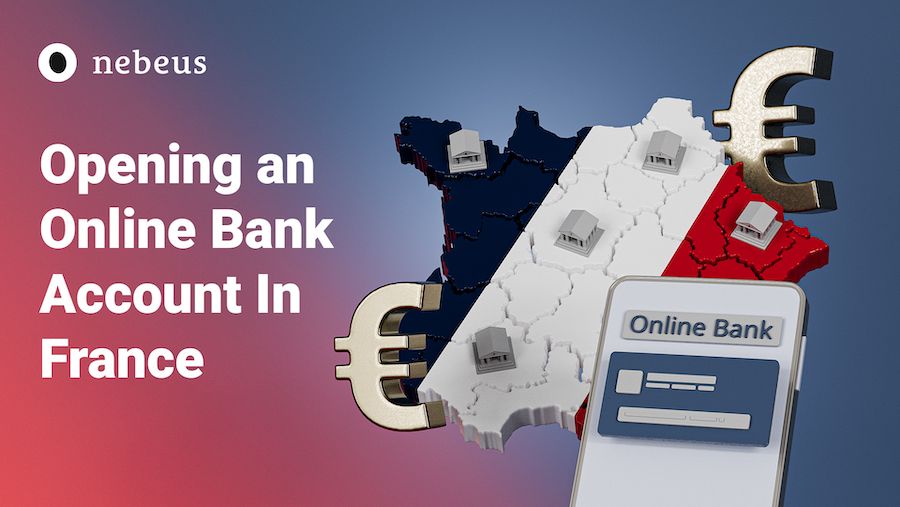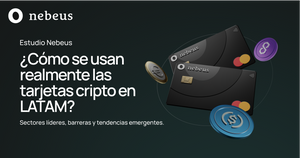Opening a bank account in France as a foreigner, whether it's an online account or through a traditional bank, involves understanding the local French banking system, meeting specific requirements, and choosing the right type of account for your needs.
This comprehensive guide will walk you through these steps, ensuring a smooth and efficient process.
How to open a bank account in France
Opening a bank account in France can be a key step for foreigners living, working, or studying in the country.
The process varies slightly between traditional banks and online banks but generally includes the following steps:
- Choosing the Right Bank: Research and select a bank based on your needs—whether it's a traditional bank with physical branches or an online bank offering digital services.
- Gathering Required Documents: Prepare necessary documents, which typically include valid identification (passport or EU ID card), proof of address (which can be in France or in your home country for non-residents), and potentially proof of income or student status.
- Application Process: For traditional banks, this often involves visiting a branch in person. Online banks allow you to complete the process entirely online. You'll need to fill out application forms and submit your documents.
- Verification and Approval: The bank account in France will verify your documents and information. This process can take a few days to a few weeks.
- Initial Deposit: Some banks may require an initial deposit to activate your account.
- Receiving Account Details: Once your account is approved, you'll receive your account details, including IBAN and BIC, necessary for international money transfers.
- Getting a Debit Card and Checkbook: Most French bank accounts come with a debit card, and you may also receive a checkbook.
- Setting Up Online Banking: If you opt for an online bank or wish to manage your traditional bank account online, you'll set up your online banking credentials.
Types of bank account in France
France offers a variety of bank accounts to suit different needs:
- Current Bank Account (Compte Courant): The most common type, used for day-to-day transactions, receiving salary, paying bills, and withdrawing cash.
- Savings Bank Account (Livret A, LDD): These accounts offer interest on your savings accounts and are often used in conjunction with a current account.
- Joint Bank Account (Compte Joint): Shared by couples or family members, allowing multiple people to manage funds together.
- Non-Resident Bank Account: Specifically designed for individuals who don’t reside in France but require a French bank account, often with specific terms and conditions.
- Youth and Student Bank Account: Offered to young adults and students, usually with advantageous terms such as lower fees or free banking services.
- Business Bank Account: For entrepreneurs and businesses operating in France, providing facilities like overdrafts, business loans, and payment processing services.
Each type of account has its specific features, benefits, and requirements beyond the standard direct debits functionality.
Choosing the right type depends on your individual financial needs, residency status, and long-term plans in France.
Alternative Financial Services: Nebeus for Digital and Crypto Transactions
In addition to traditional banks, companies like Nebeus offer innovative financial solutions, particularly for those requiring flexible, digital-first services.
While not a bank, Nebeus is registered with the Bank of Spain and provides services such as multi-currency accounts linked to crypto, virtual IBANs, and crypto-linked cards.
This makes Nebeus an appealing option for digital nomads, expatriates, or those engaged in international business or crypto investments.
Can I set up a French bank account online?
Yes, it is possible to set up an online bank account France online, especially with French banks that offer digital banking services.
Online French banks, and some traditional banks with online platforms, allow you to complete the application process, submit documents, and open an account entirely online.
However, the process may vary depending on the bank and the type of account.
How easy is it to open an online French bank account?
Opening a bank account in France online can be relatively easy, particularly with French banks that specialize in online banking.
The ease of the process for online banks depends on several factors:
- Documentation: Having all required documents ready can streamline the process.
- Bank's Online Platform: User-friendly and efficient online platforms with online banks make the process smoother.
- Verification Process: Some online banks may require additional steps for verifying identity and documents, which can impact the overall ease.
Requirements to open a French bank account in 2023
Opening a bank account in France involves meeting certain requirements, which can vary based on your residency status and the type of account you wish to open.
In 2023, these requirements have been updated to reflect current regulatory standards and banking practices.
However, it's important to note that most traditional banks do not open accounts for non-residents, and those that do often require substantial subscription fees.
Online banks like N26, Revolut, and even more innovative solutions, such as Nebeus, which offer dedicated payment accounts, are more convenient for non-residents for a variety of reasons.
Can I open a bank account in France as a foreigner?
Yes, foreigners can open a bank account in France.
The process for non-residents or those without a French address may involve more steps and additional documentation compared to residents.
Can an EU citizen open a bank account in France?
EU citizens have a relatively straightforward process for opening a bank account in France, thanks to EU regulations that facilitate banking and financial services across member states.
However, they still need to provide the necessary documentation and meet the bank's specific criteria.
Can a UK citizen have a French bank account?
Yes, a UK citizen can have a French bank account.
Since Brexit, UK citizens are considered non-EU nationals, which might entail different requirements compared to EU citizens.
UK nationals may need to provide additional documentation, such as proof of address in France or their home country, and possibly a higher initial deposit for non-resident accounts.
Can I have a UK bank account if I live in France after Brexit?
Post-Brexit, the rules for UK citizens living in France and maintaining a UK bank account have changed.
It is still possible for UK expats in France to hold a UK bank account, but this is subject to the policies of individual UK banks.
Some banks may have restrictions or require specific conditions to be met, particularly for new account openings or for non-residents.
Requirements for opening a bank account in France as a resident
For residents in France, the requirements typically include:
- Valid Identification: A passport or a national ID card if you are an EU citizen.
- Proof of Residence: A recent utility bill, rent receipt, or a tenancy agreement to prove your address in France.
- Proof of Income or Employment: Pay slips, a tax return, or an employment contract.
- French Phone Number: Some banks require a local phone number for account verification and communication purposes.
- Additional Documents: Depending on the bank, you may also need to provide a visa or residence permit, especially if you are a non-EU resident.
Requirements for opening a bank account in France as a non-resident
Non-residents can also open a bank account in France, but they often face stricter requirements:
- Valid Identification: Passport or national ID card.
- Proof of Foreign Address: A utility bill or bank statement from your country of residence.
- French Connection: Some banks may require a reason for opening an account in France, such as property ownership or business activities.
- Higher Initial Deposit: Non-resident accounts may have higher minimum deposit requirements.
- Proof of Income: Bank statements or income proof from your home country.
For both residents and non-residents, it's important to check with the chosen bank as requirements can vary slightly from one institution to another.
In addition, be prepared for a credit check and possibly an interview, as part of the account opening process.
Are there any banking fees in France?
Yes, like in most countries, banks in France charge various fees. These can include:
- Account Maintenance Fees: Many banks charge monthly or annual fees for maintaining your account.
- Transaction Fees: Fees for certain types of transactions, such as international money transfers or withdrawals from ATMs of other banks.
- Overdraft Fees: If you overdraw your account, banks may charge fees or interest.
- Card Fees: Fees for issuing or renewing debit or credit cards.
- Additional Service Fees: For services like cheque books, bank statements, or premium account features.
It's important to carefully review the fee structure of any bank before opening an account.
Some banks offer fee waivers or reductions if you maintain a minimum balance or meet other criteria.
List of the top French banks
France's banking sector is diverse, offering a range of options for both residents and non-residents.
Which online bank account is best in France?
Online banks in France are known for lower fees and convenient digital banking services.
Notable online banks include:
- Boursorama Banque: Often rated highly for its no-fee accounts and comprehensive online services.
- ING: Known for its user-friendly interface and competitive savings accounts rates.
- Hello Bank: A digital subsidiary of BNP Paribas, offering a wide range of services.
Which bank should I use in France?
The choice of bank should be based on personal financial needs and preferences:
- BNP Paribas: Offers a wide range of services and has a large international presence.
- Crédit Agricole: Known for its local community focus and extensive branch network.
- Société Générale: Popular for its investment services and comprehensive account options.
Societe Generale's License for Crypto Services
Societe Generale recently marked a significant milestone in the integration of cryptocurrencies into mainstream financial services in France.
It became the first company in the country to obtain a license for crypto services. This development reflects a global trend where traditional financial companies are increasingly embracing cryptocurrencies.
With this license, Societe Generale can offer a range of services related to digital assets, potentially including trading, custody, and management of crypto assets.
What is the cheapest bank in France?
The cheapest bank will depend on individual banking needs, but generally, online banks and their bank accounts like Boursorama Banque tend to have lower fees.
It’s advisable to compare the fee structures of different banks to find the most cost-effective option for your specific needs.
Bank accounts for companies in France
For businesses, choosing the right bank is crucial for efficient financial management. Bank accounts in French banks offer various corporate banking services, including:
- Business Current Bank Accounts: For day-to-day business transactions.
- Merchant Services: Credit card processing, online payment solutions, etc.
- Business Loans and Overdrafts: Financing options for businesses.
- International Trade Services: For businesses engaged in international trade.
Top banks for business accounts include BNP Paribas, Société Générale, and Crédit Agricole, each offering specialized services tailored to different business needs.
It’s important for companies to assess fees, service quality, and additional features like online banking capabilities and customer support when choosing a bank.
You can sign up for a Nebeus account to open a virtual IBAN and pay across the world with your Nebeus Crypto Card.
La inversión en criptoactivos no está regulada, puede no ser adecuada para inversores minoristas y se puede perder la totalidad del monto invertido.










